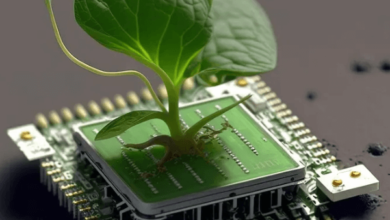Smart Homes Paving the Way for a Technological Lifestyle Revolution

Welcome to the future of living. Smart homes are no longer a distant dream but a burgeoning reality reshaping how we live, interact, and conserve resources. For homeowners looking to enhance their living spaces, tech enthusiasts eager to incorporate the latest gadgets, or sustainable living advocates keen on reducing their carbon footprint, smart home solutions offer revolutionary benefits. In this post, we’ll explore the evolution of smart homes, their myriad benefits, and give you a glimpse into the future of this cutting-edge lifestyle.
Introduction to Smart Homes
Smart homes bring together technology and everyday living, transforming houses into intelligent living spaces. The concept has evolved from simple automated systems to sophisticated networks capable of learning and adapting to our habits. Today’s smart homes integrate various devices, enabling residents to control lighting, security, climate, and entertainment through centralized systems or mobile apps.
The evolution of smart homes has been rapid, fueled by advances in internet connectivity and artificial intelligence. What was once a niche market is now a mainstream phenomenon, with tech companies continuously innovating to make smart home technologies more accessible and user-friendly. Whether you’re a tech-savvy individual or just starting to explore this space, understanding the core elements of smart homes is crucial.
With the integration of smart technologies, homes become not only more efficient but also more responsive to the needs of their inhabitants. This shift toward intelligent living is setting a new standard for modern residences and reshaping our expectations of what a home should be.
The Benefits of Smart Homes
One of the primary appeals of smart homes is the unparalleled convenience they offer. Imagine adjusting your home’s lighting or thermostat from your phone or an AI assistant responding to your commands to set the perfect ambiance for any occasion. This convenience is just the tip of the iceberg, as smart homes can significantly impact everyday tasks.
Beyond convenience, energy efficiency is another significant advantage. Smart thermostats and energy monitoring systems optimize the use of electricity, reducing consumption and lowering utility bills. They learn from your habits and adjust settings automatically, ensuring that no energy is wasted, even when you’re not at home.
Enhanced security is yet another selling point for smart homes. With intelligent security systems, homeowners can monitor their property in real-time from anywhere in the world. Features like motion sensors, video surveillance, and smart locks provide peace of mind and protect your home from potential intrusions. These technologies work together to create a safe and secure living environment.
Smart Home Technologies
At the heart of smart homes are the technologies that make them tick. Smart thermostats, for instance, have revolutionized climate control, offering precision and adaptability. They learn from your behavior and adjust the temperature automatically, optimizing comfort and saving energy.
Smart lighting systems allow you to control brightness, color, and schedules with ease. Whether it’s a cozy evening or a vibrant party, these systems create the perfect lighting for every occasion. They can also be programmed to mimic natural light cycles, improving mood and productivity.
Security systems have also undergone a technological makeover. From video doorbells to intelligent sensor networks, these systems provide real-time alerts and remote access to ensure your home is always protected. Coupled with smart appliances that streamline chores, such as refrigerators that manage grocery lists or washing machines that set themselves, these technologies redefine home management.
Making the Switch
Transitioning to a smart home requires careful planning and consideration. Start by evaluating what areas of your home would benefit most from automation. Identify your priorities, whether it’s enhancing security, improving energy efficiency, or simply adding convenience to daily tasks.
Cost is a significant factor to consider when making the switch. While initial investments may seem substantial, the long-term savings and benefits often justify the expense. Begin with small, impactful changes, such as smart bulbs or a thermostat, and gradually expand as you become more comfortable with the technology.
Installation can also vary depending on the complexity of the systems. Many devices are designed for easy DIY setup, while others may require professional assistance. Make sure to research installation requirements and seek expert help if needed to ensure everything functions seamlessly.
The Future of Smart Homes
The future of smart homes is bright, with continuous advancements on the horizon. Emerging technologies like AI and machine learning are set to make homes even more intuitive, predicting and adapting to users’ needs with minimal input.
Integration with the Internet of Things (IoT) will further enhance connectivity, allowing devices to communicate and collaborate more effectively. This interconnectedness will enable smarter automation, creating harmonious environments where everything works in unison to improve quality of life.
In the coming years, we can anticipate innovations such as voice-activated interfaces becoming more commonplace, making interactions with smart home systems more natural. The evolution of smart home solutions will continue to redefine the way we perceive and utilize our living spaces.
Sustainable Living and Smart Homes
Smart homes play a crucial role in promoting sustainable living. By optimizing energy usage and reducing waste, they contribute to a greener planet. Smart devices provide insights into consumption patterns, helping homeowners make informed decisions to shrink their carbon footprint.
Additionally, integrating renewable energy sources such as solar panels with smart technology maximizes efficiency. These systems can manage energy consumption, store surplus power, and distribute it when needed, reducing reliance on non-renewable sources.
For those passionate about sustainable living, smart homes are an invaluable asset. They demonstrate how technology can be harnessed to create environmentally conscious homes without compromising comfort or convenience.
The Smart Home Community
Being part of the smart home community offers endless opportunities to learn and grow. Online forums, social media groups, and dedicated websites provide platforms for homeowners to share experiences, tips, and troubleshooting advice.
Engaging with this community can enhance your smart home experience by keeping you informed about the latest trends and innovations. Whether you’re seeking advice on the best products or troubleshooting technical issues, you’ll find a wealth of knowledge within these communities.
Joining the smart home movement means more than upgrading your living space—it’s about becoming part of a community that values innovation and sustainability.
Conclusion
Smart homes are revolutionizing the way we live by merging technology with everyday life, offering convenience, efficiency, and security like never before. With an array of affordable smart home solutions available, now is the perfect time for homeowners, tech enthusiasts, and sustainable living advocates to explore the possibilities.
The benefits of smart homes extend beyond individual households, contributing to a more sustainable future for us all. Don’t miss out on the smart home revolution; consider taking the first step towards a more convenient and eco-friendly lifestyle today.







